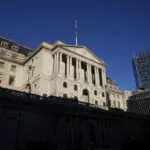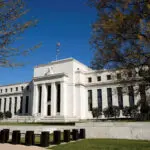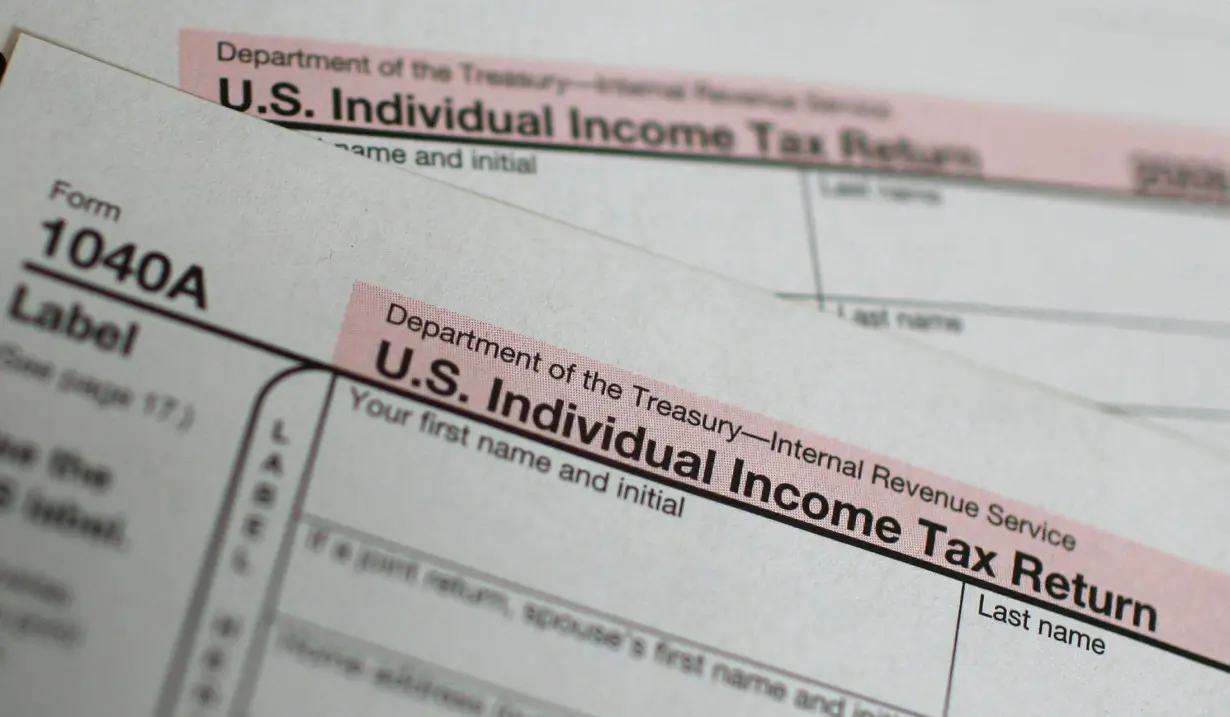By Davide Barbuscia
NEW YORK (Reuters) - Wall Street is bracing for a potential bout of stress in money markets by putting some cash on the side ahead of U.S. tax day, when high tax-related outflows could hurt market liquidity.
Tax season, which culminates on April 15 when income tax returns are to be submitted to the U.S. federal government, is typically associated with a drop in financial sector liquidity as individuals draw down cash from bank deposits and money market funds to pay their taxes.
Liquidity, measured by bank reserves at the Federal Reserve and the Fed's overnight reverse repo facility (RRP) - a favored place for money market funds to park their cash - is still considered abundant, but high capital gains from booming stock markets last year could make outflows particularly sizeable this year, analysts have said, a scenario that could lead to a surge in short-term interest rates.
"It could be bumpy getting over that period," said Joseph D'Angelo, head of PGIM Fixed Income’s money markets team. "To be defensive ... you would effectively manage your maturities in such a way that you make sure you have enough liquidity in front of that date," he said.
Having more cash available ahead of tax day could also allow fund managers to take advantage of any potential volatility, some of them said, should borrowing costs increase because of higher demand for cash.
Spencer Hakimian, CEO of Tolou Capital Management, a New York-based macro hedge fund, said he would be ready to buy short-term fixed income instruments such as Treasury bills in case of a tax-related liquidity event that would push short-term interest rates higher.
“We’d be a buyer because we think the Fed would intervene in the market,” he said.
The Fed did not immediately respond to a comment request on possible market interventions.
DISTRIBUTION
Any sign of stress will be closely monitored by investors and the Federal Reserve as it could give a sense of the availability of cash in the financial sector after nearly two years of quantitative tightening (QT) - a reversal of the massive central bank bond purchases undertaken to support markets as the coronavirus hit in 2020.
It could also give clues on how quickly the Federal Reserve will slow down its balance sheet shrinkage, a tapering process that Fed Chair Jerome Powell said last month could start soon.
In a previous round of QT in 2019, falling bank reserves led to a surge in the cost that banks and other market players pay to raise overnight loans to fund their trades, forcing the Fed to intervene by injecting liquidity into repo markets.
"There was a liquidity squeeze and the Fed basically had to completely undo all the QT they had been doing for years before that event. Now, they want to avoid that," said John Velis, head of FX and macro strategy at BNY Mellon Markets. "I think they're very scarred by that experience," he said.
The flow of cash from private accounts to the Treasury could be sizeable because of stronger equity market performance in 2023 compared to 2022 and the inclusion of California after a filing extension last year, Velis said. April tax receipts last year amounted to about $380 billion, while this year they could go up to $600 billion or more, he estimated.
Tax season this year could be disruptive also because while overall liquidity remains abundant it may not be well distributed amongst banks, added Velis.
Powell highlighted the same concern last month: "there can be times when in the aggregate, reserves are ample or even abundant. But not in every part, and those parts where they're not ample, there can be stress," he said.
RESERVE BALANCES
Assessing the adequate level of overall reserves is also tricky.
In remarks at the end of the central bank's rate-setting meeting last month, Powell said the balance sheet shrinkage should end when banking sector liquidity is large enough to navigate periods of stress, but he added there was no rule for what that level would be.
Wall Street's biggest banks indicated in a recent primary dealer New York Fed survey the expected levels of reserves needed to ensure the financial system runs smoothly, without a repeat of the 2019 liquidity squeeze, would be around $3.1 trillion. Reserves are now at about $3.5 trillion.
Because individuals are more likely to take their cash from banks rather than money market funds, bank reserve balances could decline to $3.1-3.3 trillion after the April 15 tax-related outflows, JPMorgan fixed income strategists led by Teresa Ho estimated in a recent note.
This would bring reserve balances within the range indicated by primary dealers as the lowest comfortable level of reserves.
"While we don't necessarily think this will result in a funding crisis ... it could shed light on how far QT can continue to run," the JPMorgan strategists said.
(Reporting by Davide Barbuscia; editing by Megan Davies and Nick Zieminski)
































